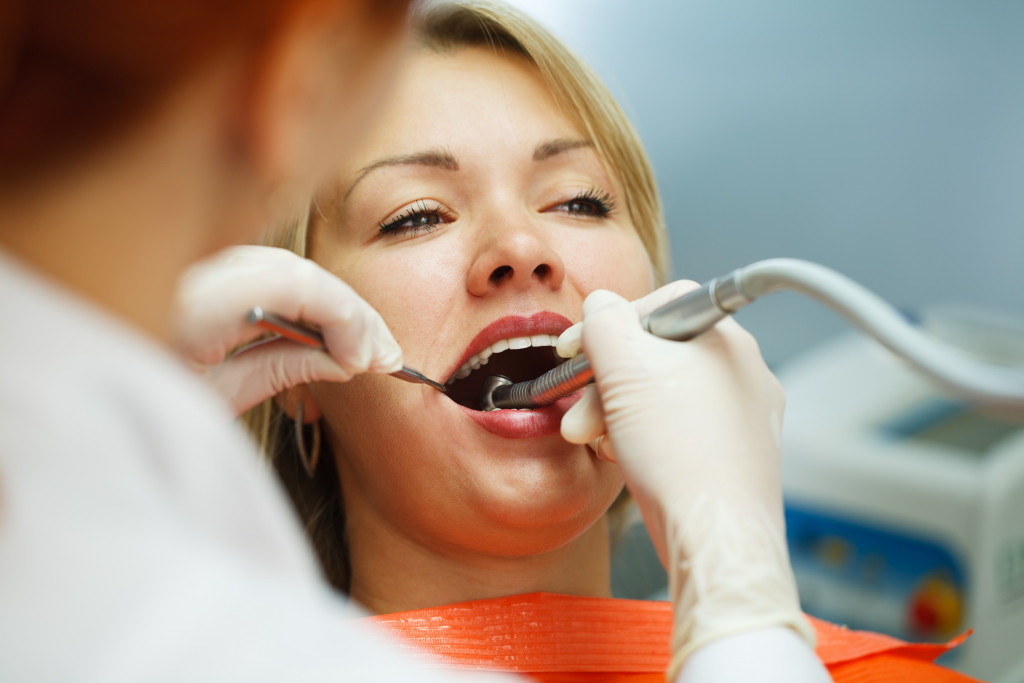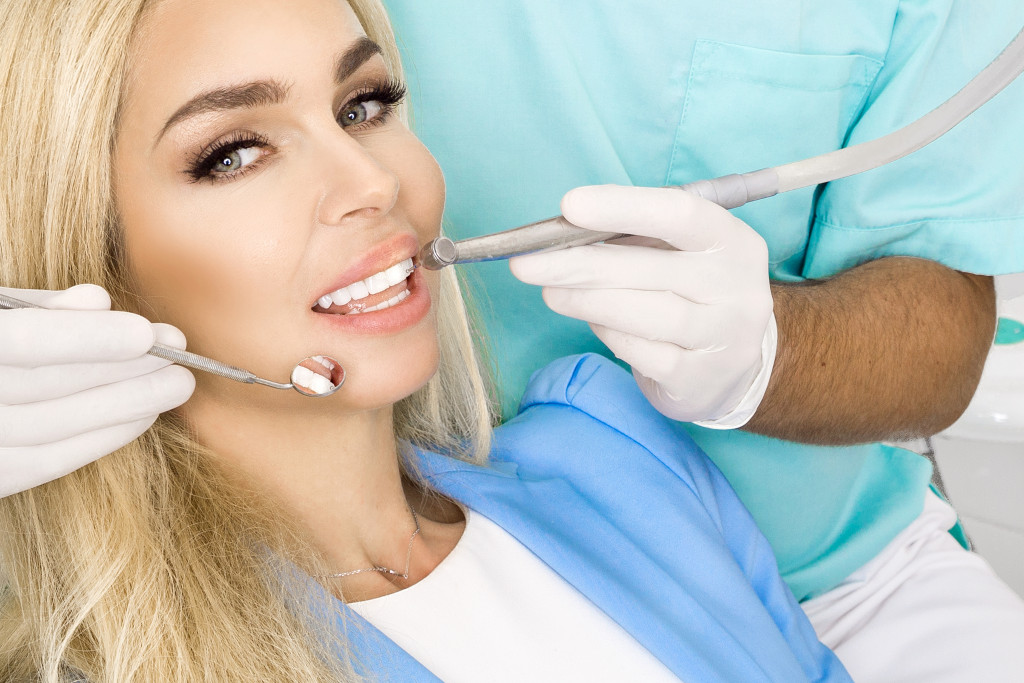Teeth are important for things like chewing food, speaking properly, and appearance. Teeth are also one of the most susceptible parts of the body to damage from smoking, drinking too much alcohol, or taking certain medications. When teeth are damaged, it can affect your quality of life in many areas including confidence with speaking, smiling, and general appearance.
There are some easy steps you can take to keep your teeth healthy for life!
1. Go for Flouride-Free Toothpaste
When you begin brushing your teeth, do not use fluoridated toothpaste, which is meant for older children and adults. Use a very small amount of plain toothpaste with no whiteners or flavorings on the bristles of the brush.
Keep the toothbrush at a 45-degree angle to gently scrub all surfaces of teeth by moving in short back-and-forth motions. Do not scrub too hard on gums as it can be painful and lead to infection.
2. Use Electric Toothbrush
Electric toothbrushes are generally more effective than manual brushes because they encourage good brushing habits; however, some electric brushes can be loud and cause discomfort for little ones (this does not mean that you should stop using an electric brush if this is what works best for your family).
3. Floss Daily
It’s important that everyone flosses regularly — not just adults! Once a day is good enough but aims for at least two times per week so that food does not accumulate between teeth which can lead to cavities forming in harder-to-reach areas.
Many parents choose not to floss their children’s teeth because they have small mouths and fingers which are not as dexterous. To solve this problem, there are now children-sized flossers on the market which are specifically designed for delicate gums.
If your child is still young enough to need training toothpaste, you can enlist the help of a parent to clean the child’s teeth before bedtime.
4. Limit Sugar Intake
We all love candy — but sugar is very damaging to teeth! Many people don’t think twice about eating sugary foods or drinks throughout the day whereas some refrain from eating anything with added sugars until dinner time (or even later).
For younger children, it’s important that parents limit their access to high-sugar snacks like sweetened yogurt or fruit juice. For older children, sugar should be completely eliminated from the diet at least until dental appointments are made with a dentist to discuss further care.
5. Make Regular Dental Appointments

The first few years of your child’s life will fly by quickly so it is important to make early appointments with a general dentist to establish good oral hygiene habits which are hard to break later on in life!
The American Academy of Pediatrics recommends that all children visit the dentist by age one because baby teeth are just as susceptible to damage as adult teeth.
6. Eat Healthy Foods
Chewing carrots for lunch? Carrots have been shown to have tooth-strengthening properties due to their concentration of Vitamin A!
Vegetables and fruits like celery, apple slices, and carrots (just to name a few) can provide dental benefits such as decreasing cavity-forming bacteria and increasing saliva flow.
7. Avoid Frequent Snacking
Sugary or acidic foods that were not eaten during meals should be avoided before bedtime due to the damage they can do to teeth while we sleep!
This includes chewing gum which can stay in your child’s mouth for hours and cause cavities especially when eaten right before going to bed.
8. Limit Drinks with Caffeine
It may be easier to just let your child drink whatever, whenever — but caffeinated beverages are known to stain teeth.
If you want to give them a special treat once in a while, offer low-caffeine options like iced tea or chocolate milk!
9. Establish Good Oral Hygiene Habits Early on
Both good and bad habits can be formed beginning in childhood. The more destructive habits of brushing teeth only once per day or after every meal (and not even all the surfaces!) should also be addressed with a dental professional to further prevent damage to the gums and enamel on teeth.
10. Be Consistent
The key to good oral hygiene is consistency! Parents who enforce their children’s best efforts at tooth brushing and flossing will reap the benefits as they grow into their teenage years and beyond.
Make sure that everyone in your home knows how important it is that everyone brushes, flosses, visit the dentist, and eats healthy — because although cavities are largely preventable, tooth decay can affect anyone at any age.
The benefits of good oral hygiene habits are endless and really start when you’re a child! While it’s hard to enforce these practices, the earlier your children can learn about how important their teeth are for life, the better. Here we’ve outlined 10 tips that should help keep your family’s teeth healthy and strong well into adulthood.

